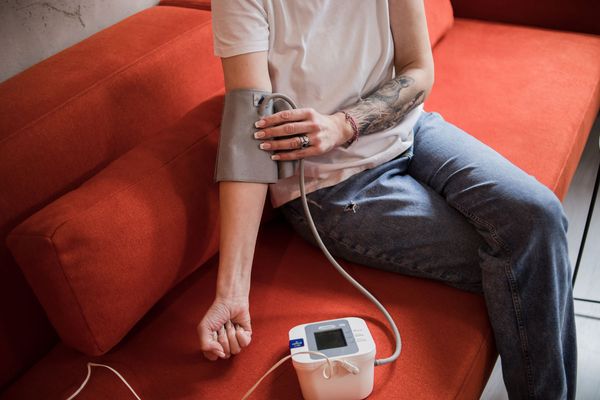We need to think differently about EPR rollouts: redefining the pre-implementation approach
Guest blog by Alison Macdonald, Global Lead for EPR Implementation at Nordic Consulting
In recent weeks there have been a number of announcements from NHS trusts and Integrated Care Systems (ICSs) about their digital transformation plans. Most notably, Norfolk and Waveney ICS is rolling out the MEDITECH EPR solution across its three acute trusts, with plans for a March 2025 go-live. Having been dubbed a ‘digital desert’ in the media, the implementation is set to make the ICS the first in the country to have a single, shared EPR.
It's a significant step forward in NHSE’s transformation agenda and has the potential to pave the way for other healthcare systems. However, big bang rollouts are complex and can be hampered by delays, poor adoption, and varied levels of benefits realisation, if not managed effectively. And these risks will only be multiplied at an ICS level.
Below, we consider some of the most critical factors for success to be implementation planning, governance, and decision-making.
Pre-implementation work and the development of a robust decision-making process are often overlooked, particularly as these require experience and skills which unfortunately aren’t always available in the NHS. As is well documented, the NHS is facing challenges with recruiting and retaining qualified staff, and this includes strategists, advisors, project leaders, and experts who can support a robust and rapid EPR implementation.
Plus, all too often, the outsourced external resources being offered to the NHS involve contractors who do not always have the tailored execution expertise needed in situ. Whereas, by working with a specialist implementation partner it’s possible to have immediate access to the necessary knowledge and experience.
Redefining pre-implementation and governance
In our experience, the most successful deployments take a slightly different approach to the more standard model used in the NHS, and it's one that we consider to be imperative for shared-site rollouts.
It involves:
- Bringing together key decision makers from each department/site to develop guiding principles that address the technical, financial and clinical issues, as well as considering the overall patient experience. Whilst elements of this happen in the NHS, it isn’t common to incorporate all these factors from the outset.
- Completing an assessment of current state readiness and reviewing change readiness aligned with the goals and outcomes of the programme. We find that clinical readiness isn’t considered in the same way as operational and technical readiness, and this can cause challenges later down the line.
- Linked to this point, prioritising mentoring the leadership team on how to effectively develop and execute a programme that will benefit patients and clinicians and be widely adopted by end users.
- Ensuring training, activation planning, and sustainability planning are included in the programme plan with dedicated funding and assigned resourcing. They’re essential and need to be baked in and protected from the outset.
- Developing and executing a shared governance model with clear descriptions of the roles of each structure and how decisions will be made and escalated.
- And having a third-party facilitator to support clinical standardisation activities and group consensus. It’s proven to speed up the process and helps overcome any conscious/unconscious bias.
A new way of thinking
Based on the projects we have been involved in, the benefits and return on investment from a shared EPR across an ICS will be fundamentally aligned with the programme’s ability to navigate the hard work of developing and adhering to a centralised and standardised build of the system.
ICSs such as Norfolk and Waveney, who are initiating their plans for digitally enabled clinical transformation, have the opportunity to think differently about the approach to its EPR implementation. Not only for the benefit of the patients in their locality, but to pave the way for other ICSs to follow as they progress the convergence agenda in the coming years. Now’s the time to redefine pre-implementation and governance.
Groups

techUK has launched a Life Sciences workstream, bringing together members actively working in drug discovery, digital therapeutics, data and AI, or those interested in moving into this space. As the Life Sciences sector looks to introduce digital health technologies into its portfolio, techUK are shaping the conversation.

The Interoperability Working Group will work towards achieving the vision set out in NHS England’s 2022 draft standards and interoperability strategy.
The group will aim to encourage the adoption of open standards and fluidity of data whilst recognising the commercial needs of members.
It will also focus on demonstrating the value of interoperability to NHS senior management and improving the abilities of SMEs to implement interoperability standards.

Find out more about our work to shape the digital social care marketplace and how our members are innovating across the industry.
Health and Social Care updates
Sign-up to get the latest updates and opportunities from our Health and Social Care programme.
Authors
Alison Macdonald
Global Lead for EPR Implementation, Nordic Consulting
With a career spanning more than two decades, Alison MacDonald is a highly experienced nurse who has held leadership roles in informatics, clinical practice, and programme management in community, acute, and tertiary care settings. As the Global Lead for EPR Implementation at Nordic, her primary focus is on helping healthcare systems and providers leverage technology to advance clinical practice, improve healthcare system efficiency, and ultimately improve patient outcomes.








